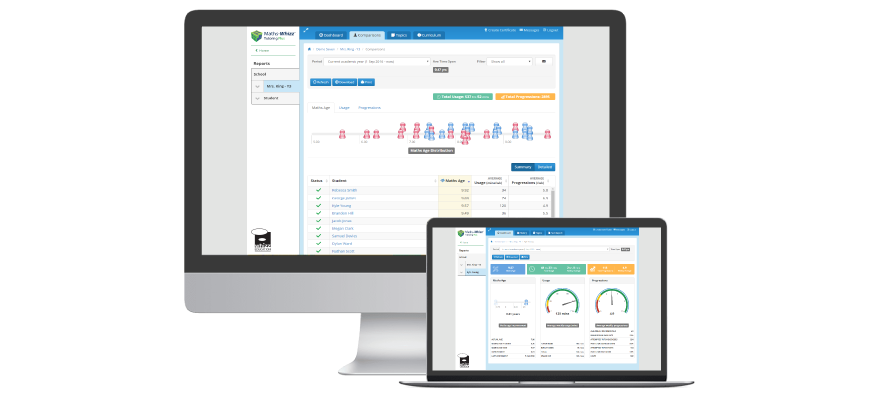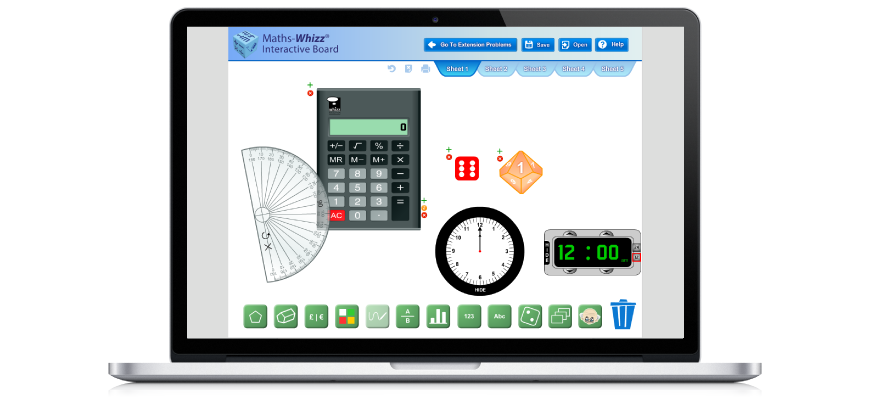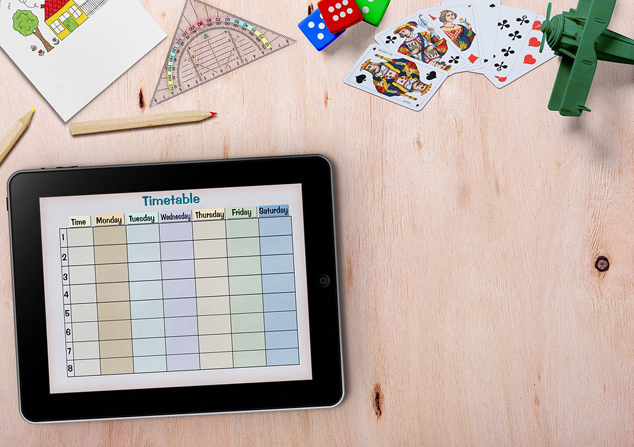Fostering creativity in students has dominated discussion in education since the turn of the century. The Partnership for 21st Century Skills (P21) lists creativity as one of its 4Cs alongside critical thinking, collaboration, and communication. In 2016, the World Economic Forum released its top ten list of desired skills for 2020, including creativity among them. Professor Michael Fullan includes creativity as one of his 6Cs, and describes it as the need for students to possess creativity and imagination.
Despite these attempts at defining creativity in education, a challenge remains: explaining what creativity looks like within the traditional school culture. Too often, ‘creativity’ gets confined to a single course - such as art - or an individual unit, project, or activity. However, Professor Fullan defines creativity not only as “the opportunity to pursue novel ideas”, but also as “economic and social entrepreneurialism” and “leadership for action.” He argues that students need the opportunity to use their imaginations, engage in problem-solving, and have the opportunity to learn through play. Therefore, when schools provide these conditions, students have a chance to develop their creative skills.
As an app, Book Creator does not create these conditions any more than a paintbrush or crayon creates a masterpiece. And yet, when placed into the hands of students who are given the opportunity to imagine, explore, problem-solve, and create, it removes the technical limitations from a student’s imagination. Not only does Book Creator provide students with the capacity to work in text, drawing, photos, video, and audio, but it also encourages them to embed and incorporate content created in any number of tools. The open-ended, multimedia capacity of Book Creator then supports the conditions in which the creative process can occur.
Book Creator is an open-ended, creative and cross-curricular app that empowers students and teachers to create multimedia ebooks. Available on iPad and Chromebook, Creator launched in 2011 and has gone on to be one of the most popular apps in education, winning the 2015 Bett Award for Best Educational App, and 2018 American Association of School Librarians Best Website for Teaching and Learning.
Returning to Fullan’s notion - that creativity not only results in a product, but also entrepreneurialism and leadership - how might educators allow students to harness the power of digital tools such as Book Creator to design a creative solution to a community challenge, or take action as a leader in the classroom? Multimedia tools encourage students to share their thinking and demonstrate their understanding in varied and previously unimaginable ways. The challenge then lies in how skilled educators might design new learning experiences that foster the creative process.
Want to receive cutting-edge insights from leading educators each week? Sign up to our Community Update and be part of the action!
It was Warwickshire County Council that first introduced us at The Coleshill School to the Digital Schoolhouse (DSH) team. We were so impressed by what the programme had to offer, that when the council kindly agreed to fund the initiative, we applied to become a DSH school straight away. While we’re a Secondary school, a significant number of Primary school pupils have chosen to come to us specifically because they’ve enjoyed the DSH experience so much. So, from that perspective alone it’s been massively successful. However, we’ve experienced even more benefits as a school...
As Computing teachers, the programme really opened our eyes to the importance of our students understanding the subject’s concept in order to fully appreciate its principles. So many students will sit at a computer and carry out a checklist of actions to reach their desired result. What many don’t understand, however, is why they are doing these various tasks. Therefore, if there happened to be a problem (a glitch in the system, for example) at any point along this checklist, they wouldn’t be able to try alternative routes to rectify it, because they simply wouldn’t have the conceptual knowledge that would enable them to do so.
In true @DigSchoolhouse fashion, students learn #computing through dance! Taught by David, @KinetonHighSch #Programming @KES_Computing pic.twitter.com/arU5NZukNu
— Digital Schoolhouse (@DigSchoolhouse) February 15, 2018
The DSH programme is a way of simplifying and explaining concepts away from a computer, something we never would have explored before. Over a year in, not only do we use this approach with the Primary school pupils, but we also apply the same concept to our own students. We’ve put quite a lot of what we’ve learned into our schemes of work for our Key Stage 3 students; ultimately, it’s changed the way we teach Computing in the school as a whole!
A DSH session's activities depend entirely on the areas and styles upon which each school wants to focus. Workshops could focus on anything from understanding sequences in computing, to more playful computing activities (which can be embedded in workshops or delivered separately as an injection of play-based learning). Examples include:
Aims to develop the understanding of a sequence and highlight the importance of accurate instructions. Developed by DSH and Langley Grammar School, Get with the Algo-rhythm was born from the ‘Computing through Dance’ project, to use innovative computing to appeal to girls. Flow charts are developed to instruct famous dance routines, including the Hokey Cokey and Thriller!
It's a #DSHplay classic! Energising delegates after lunch with #thriller ?? @GoogleForEdu @tes Discover the full 'get with the algo-rhythm' workshop here: https://t.co/Th4B7fEMsj #DSHplay #edchat #DigitalSkills pic.twitter.com/eIavhBzO1j
— Digital Schoolhouse (@DigSchoolhouse) April 23, 2018
Cat On Yer Head is a crowd game that aims to teach key game-design principles using unplugged techniques. DSH worked in collaboration with Playniac to develop teacher guidance to help bring this exciting activity into the classroom. You can deliver it as a fun five minute starter to your lesson, or turn it into a main activity stretching over 20+ mins.
Here’s one that helps to develop strategic thinking and collaborative thinking skills within learners using jigsaw puzzles. This activity, developed in collaboration with Code Kingdoms, takes this well-loved game further by building in opportunities to develop Computational Thinking skills.

You can find more workshop ideas at www.digitalschoolhouse.org.uk/workshops.
The DSH programme benefits Secondary schools, but it is also hugely valuable for Primaries too. It’s a great way to start teaching key skills related to Computing from a young age, and helps prepare them when it comes to making the transition to Secondary school. By the time they come to us in Year 7, for example, they’re already familiar with programming and debugging system; it’s an incredible starting point for them!
WORKSHOPS ARE GO! #DSH Lead Teacher, Andrew @ColeshillSchool teaches @WillowsCE 'The Emotional Robot' @cs4fn #DSHplay pic.twitter.com/S5aGTtmAgW
— Digital Schoolhouse (@DigSchoolhouse) February 15, 2018
Primary teachers really appreciate the programme too, as obviously Computing isn’t where their skill base lies. Several teachers have told me that prior to doing the DSH workshops, the extent of their Computing knowledge would have been limited to Microsoft Word and PowerPoint. However, the programme can really help to develop their skills - some have even used it as their Computing project!
OK, so @CCCSuffolk have built a prototype "Computing Unplugged" Tic Tac Toe Neural Net, very pleased. We'll neaten it up and share with the world. It is based on what we learned @DigSchoolhouse. pic.twitter.com/O4YA8cvCpF
— Creative Computing Club CIC (@CCCSuffolk) July 17, 2018
My advice to other Secondary schools is this: Apply to become a DSH school. And to Primary schools, I say: Reach out to your nearest DSH school to schedule some workshops as soon as possible!
To find out more about the Digital Schoolhouse initiative, head over to www.digitalschoolhouse.org.uk and get involved!
Want to receive cutting-edge insights from leading educators each week? Sign up to our Community Update and be part of the action!
The overload of information on the internet poses a problem for time-strapped teachers, who have to trawl search engines for resources that are appropriate for their subject and class. It was this problem that, in Autumn 2014, we decided to tackle head-on with the creation of TeachPitch, a platform that curates free teaching resources and lets you search these for the perfect resource.
Since then we have had tens of thousands of users from over 130 countries, providing direct access to over hundreds of thousands of resources and with millions more available via our dedicated premium content providers.
We are so proud of the work we have done, but we have come to understand that dealing with information abundance is only one part of a wider issue; the digital capability of teachers. In a report in 2016 (page 9) the UK Government recommended that:
“Employers should ensure existing staff have the training to keep their digital skills updated, and develop active recruitment and development strategies to maximise the digital skills of their workforce at all times.”
We know that teachers are still not always offered this level of support, and we want to help solve this bigger problem with a resource that is relevant to them. This is why we are very excited to announce a brand new online teacher-training platform solely focussed on fully engaging teachers as professionals in a rapidly evolving new Digital Economy.
We are extremely proud to present: the Digital Skills Course.
This course consists of a series of 20+ webinars given by expert tutors over one year, accessible via our innovative, exclusive training platform. Registered teachers will be able to enjoy online training in a variety of topics, from video teaching & learning, using tech to identify and address student special needs, and digital educational content creation. The course also addresses tech matters that are further out there, such as virtual/augmented reality, the role of the blockchain in education, introduction to coding, and so much more.

With this course, we aim to improve teachers’ digital awareness and introduce them to the way that digital tools and methods will change how teaching takes place in the future. We want to provide the teachers of today with the skills to teach the students of tomorrow. We are working hard on the first release of the course; building the platform, testing it with real teachers and identifying the very best tutors to lead the webinars. We cannot wait to introduce the final product next month.
We have had great feedback so far. If you’d like to get involved with helping test the course, or keep updated about our progress, please email us at [email protected]. To find out more about TeachPitch, visit www.teachpitch.com.
Want to receive cutting-edge insights from leading educators each week? Sign up to our Community Update and be part of the action!
There’s no denying that while teaching is one of the most rewarding professions, many teachers are working long hours to meet the demands of the job. At Whizz Education, we’re keen to empower teachers by providing high-quality interactive teaching resources that aim to cut down on planning time both in and out of the classroom.
We’ve already discussed how the Maths-Whizz Tutor can save you valuable time by automatically assigning and marking fully-individualised lessons, but our Tutor is just one of the four time-saving features in our Schools Suite. Let’s look at the others.
1. Assessment & Reporting
Each minute your students spend learning with the Maths-Whizz Tutor is actually a no-stress formative assessment that is used to tailor their learning experience. Maths-Whizz looks beyond just ‘right and wrong answers’: when assessing your students’ performances across its exercises and games, it factors in the time taken on each exercise and the number of hints and tips that are needed before the student answers. This information is gathered in Assessment & Reporting in real time, which converts the data into easy to understand reports that allow you to monitor the progress of individual students, classes, or even an entire school, at a glance!
Our Topic Focus feature allows you to direct the Maths-Whizz Tutor to focus your students’ lessons on any curriculum topic of your choosing. Better yet, these lessons are individualised. Students who are ready for the topic will receive lessons that meet their specific needs while students who aren’t ready yet will continue to build the right foundations. It takes just three clicks - simply pick a topic, set a deadline and click ‘confirm’. It’s that easy!
Not only does Assessment & Reporting cut down on your marking time by putting all students’ results in one convenient location, the fact that our easy to understand reports are easily shareable makes them invaluable for parent-teacher meetings, school performance reviews and meetings with school governors.

2. Teachers’ Resource
With Maths-Whizz, your days of scouring the internet to find the right maths resources for your students are over! With over 3,500 hours of teaching content in one convenient online location, Teachers’ Resource is the perfect tool to help you build your ideal maths lesson.
Our high-quality maths resources cover every National Curriculum learning objective from Reception to Year 6, and 96% of learning objectives up to the end of Year 8, allowing you to quickly and easily create differentiated lessons that cater for all of your students, irrespective of their maths ability. These lessons can be printed off as worksheets and given out to your class or displayed on an interactive whiteboard. All you need to do is log in, select your students’ ability and pick your topics.
That’s not all. With Teachers Resource, you can easily create assessment tasks covering multiple topics in just a few clicks.

3. Customer Success
At Whizz Education, we see ourselves as an education partner rather than an edtech provider, which is why we work closely with you to understand and achieve your specific educational goals.
When you subscribe to Maths-Whizz, you get your own personal Customer Success Manager, who will not only assist with the implementation of the programme at your school but will be available throughout your subscription to ensure you achieve all your unique educational goals. They will be responsible for providing your teachers with bespoke CPD-certified training courses and actionable impact reports while also holding special celebration assemblies that recognise student success.

So, if you’re looking to scale back your planning time this school year, while also ensuring that your students experience accelerated growth in mathematics, visit our website to request a free consultation.
Want to receive cutting-edge insights from leading educators each week? Sign up to our Community Update and be part of the action!
Innovate My School kindly invited me to ruminate on the theme of "edtech that schools might want to know about in 20/1819". Given that the Department for Education recently announced five areas where they think technology has the ability to create real positive change within the educational system, this seems like a useful starting point. With the usual caveats around implementation, training, and contextualised procurement, here are my suggestions:
Assessment
The DfE states: "Technology has the potential to make assessment far more effective and efficient – while reducing the time teachers spend on marking."
The Edtech Podcast view: If you’re looking for assessment tools, make sure they do more than multiple choice questions, but less than a NASA control centre. The idea is that tools give a clear picture of ‘progress’, so that you can step in with your specialist knowledge of a student’s particular circumstances to support. Many assessment tools now use algorithms to ‘personalise’ learning for a particular student: see CENTURY, Third Space Learning, Watson Education. Assessment focused on identifying personal effort in group work is also surfacing as the demand for collaborative skills intensifies: see Cambridge Assessment and, more generally, Classroom Monitor, GL Assessment, Earwig Academic Timelines, Unio by Harness, Pobble (for Literacy) and HegartyMaths (for Maths) are just a few to review.
Teacher CPD
The DfE states: "We know that for many teachers, individualised training opportunities away from school can be hard won, but there are now more options to take up online training, which can be more flexible and more cost effective."
The Edtech Podcast view: We think this is a massive WIN area, offering continual support and learning for teachers and leaders in a fast-moving world. There are multiple tools and services out there (outside of Twitter, podcasts, Facebook groups, Medium blogs and YouTube channels). Check out the likes of TeacherTapp, Makematic, Spongy Elephant, The Chartered College of Teaching, TeachPitch, HES, BlueSky Education, Onvu Learning and many more.
Administration and saving teachers time
The DfE states: "Innovative new technology can reduce the administrative burden on teachers – saving time and money. Already, moving from server-based systems to the cloud has saved a number of schools thousands of pounds and hours of time.”
The Edtech Podcast view: We have visited schools where the focus on saving teachers time has allowed a laser focus on student support. This is usually driven from leadership with teachers and follows Dom Norrish’s ‘Implementation Effect’ (how the tool is implemented is far more important that the quality of the tool). Where this heavy lifting is done effectively, it allows for huge efficiencies to be made and for teachers to be spending their time. Services range from entire cloud-based VLEs, to niche products around school timetabling or communications. Check out the likes of Microsoft, Google, GroupCall, Wonde, Firefly, Show My Homework, Edval Timetables, and Airhead to get started.

Inclusion
The DfE states: "Technology can help access and inclusion for children with different backgrounds and abilities. This can be especially powerful in supporting students to learn alongside other children irrespective of their needs."
The Edtech Podcast view: The potential for technology to assist learners previously held back by more traditional learning is great. On the show, we have talked about how voice technology might enhance the learning opportunities for those with Dyslexia, and Microsoft has brought out some great tools and enhancements in this area. Many of the “famous” YouTube channels - like HegartyMaths, Khan Academy, and MisterWooTube - started as a way to allow students who were unwell to be able to keep up with their peers whilst in the hospital or in the home. Where class sizes or societal status are an obstacle to learning, personalised technologies allow students to progress. See Microsoft OneNote, Lyfta, Connect Design, Dolphin Assistive Technology, British Dyslexia Association resources, Mrs Wordsmith, Mister WooTube, Edovo, Digiexams, Xprize, One Billion.
Adult education
The DfE states: "In an increasingly automated world, jobs are changing fast. Many adults want to learn new skills, but have responsibilities that make returning to a classroom or lecture hall difficult. That is why, as part of our National Retraining scheme, we will be offering online adult learning courses, including in digital skills."
The Edtech Podcast view: This is an area which is truly exploding, as we see the likes of WeWork ride on the back of a huge freelancer economy and become new global mega-brands - seemingly overnight. These freelancers are well aware that lifelong learning isn’t just a nice-to-have, but a necessity for continued employment. Juggling multiple roles, “gigs” and caring roles, these adult learners are embracing flexible learning opportunities. See FlatIron, WhiteHat, FutureLearn, General Assembly, Facebook with Freeformers, DigitalMe, Pluralsight, Lynda.com, Hub42, HowNow and many more. Knowing and understanding this world is a good starting place for preparing young people as they start to consider what to do after school.
Want to receive cutting-edge insights from leading educators each week? Sign up to our Community Update and be part of the action!
‘Outstanding’? ‘Good’? ‘Less than ideal, but we’ll muddle along for another year’? How does your timetable fare? Asked to give their new school timetable an Ofsted rating, over 25% of teachers told us that they would place it in the ‘requires improvement’ category. Moreover, almost all described their timetable as less than ‘outstanding’, offering a real opportunity for SLT to make meaningful improvements before it’s too late.
If the summer term is a time of reflection, then the autumn term represents fresh starts. Improvements. New ways of working. Changes that make sense for the school. And what better place to start than the timetable? After all, it’s the most important document in the school, and key to success on every level.
With this in mind, we asked experienced headteacher and Edval consultant, Paul Phillips, how a school can improve its timetables at this stage of the year - with minimal disruption. Here’s what he said:
1. Improve your staffing
“For accountability reasons, it is vital that teachers and school leaders can maintain ownership of pupil outcomes. However, it’s equally important for students to build meaningful learning relationships with their teachers. Too many teachers resulting from split classes mean that students feel that they are not known by their teachers. They also demonstrate stress behaviours when the delivery consistency does not go smoothly.
“Teachers also rightly want planning time with their co-teacher, where split classes are a regular feature on their timetable. Without this, curriculum delivery, homework and marking can be a major issue, for teachers and students alike.”
2. Improve your lesson spreads
“With a far greater emphasis on maximising pupil progress, it is essential that the timetable supports effective learning and teaching practice. The ability to offer short but regular language lessons, double sessions for Science and Technology lessons, and avoiding two lessons on a day, allows teachers to better manage learning, marking, homework and time for reflection.
“Control of this area has for many schools been an ad-hoc affair. The power to reduce occurrences of inappropriate spreads, but also the ability to improve teacher spreads, and class spreads, means I can give teachers and students a better timetable experience.”

3. Improve your rooming
“Rooming can be a real headache in schools, and is often an afterthought in many schools’ timetables. But if you ask a part timer, or member of SLT, who has to navigate through corridors and up and down staircases with trolley and boxes of books, equipment and materials, then you will get a very blunt response to this aspect of the timetable!
“Schools with split sites, complex buildings across a campus, buildings with multiple and narrow staircases, need to put much more care into their rooming requirements. Having the tools on hand to maximise rooming quality can dramatically reduce staff and student movement across the timetable.”
4. Improve your option blocks
“Optimising option blocks is essential for all kinds of reasons. Giving students their options ensures greater satisfaction in offers, and enables students to progress more rapidly in subjects that they have chosen, and want to excel in. By focusing on optimising student preferences, I can have far greater control and understanding of student requests.
“For schools in a ‘deficit funding-led curriculum’ cycle, optimising option blocks allows for lean timetabling, the opportunity to drop classes and maintain high student satisfaction. It’s a vital tool in reducing staff costs, and it’s not too late to improve them.”
The year ahead
So why not take this opportunity to tweak your timetable with minimal disruption to the school community? Edval Improve services give SLT the opportunity to supercharge more than just the timetable, positively influencing staff morale, student learning and budget bottom lines in the process.
Challenge our experienced Edval consultants to work on your chosen timetable improvement area and refuse to settle for anything less than the best. Interested in finding out more? Say [email protected], or visit www.edval.education for more information.
Want to receive cutting-edge insights from leading educators each week? Sign up to our Community Update and be part of the action!
Wouldn’t it be amazing if there was a way to accelerate student progress in Maths, while also ensuring that they have fun along the way? Well, with Maths-Whizz, the multi-award winning online Maths tutor from Whizz Education, both of these seemingly contradictory objectives are entirely possible.
Not only has the Maths-Whizz Tutor been proven to accelerate student attainment in Maths*, but the verdict from students is that it also makes the subject fun. But how does Maths-Whizz achieve this? The process can be broken down into four easy steps.
1. Assessment
As soon as your students log into Maths-Whizz, they will take a pressure-free assessment which pinpoints their individual strengths and weaknesses across the curriculum. The tutor will then automatically set each student engaging tailor-made lessons and fun games, which aim to close the specific gaps in their core knowledge that have been identified in the assessment.
2. Adaption
As your students learn, the Tutor adapts its lessons and games, ensuring that they receive appropriate content at the exact moment it's needed. Factors used to determine the appropriateness of the content provided include: the student's answers to previous questions, the time taken to answer questions, and the level of encouragement provided by the Tutor before an answer is submitted.
3. Support
Just like a human tutor, the Maths-Whizz Tutor supports your students’ learning by providing confidence-boosting prompts and scaffolded support. Additionally, if the Tutor feels a student is struggling, it will take them back to foundational material.
4. Reinforcement
To ensure a student has mastered a topic, they must pass a short interactive test. Once they have passed this test, Maths-Whizz will move them on to more challenging content. If a student does not pass the test, the Tutor will continue to build on their foundations until they are ready to progress.
What’s more, we’re so confident that the Maths-Whizz Tutor will accelerate your students’ learning that we back it up with a Money Back Guarantee. T&Cs apply.
To find out more about how the Maths-Whizz Tutor can help accelerate student attainment at your school, visit www.whizz.com and book a free consultation, or call us on +44 (0)203 328 6564.
*Research by Whizz Education - conducted with over 12,000 students and verified by independent experts - found that students who used Maths-Whizz for 45-60 minutes a week increase their Maths Age, on average, by 18 months in the first year of use.
Want to receive cutting-edge insights from leading educators each week? Sign up to our Community Update and be part of the action!
Excess workload: it’s the recurring issue that’s driving teachers away from the profession in droves. Between planning and marking lessons, collating results and ensuring that every child is catered for, it’s surprising that educators have any time to think let alone teach a class.
In fact, a DfE survey has revealed that teachers currently work over 50 hours per week on average - that’s more than both police officers and nurses! Don’t worry though, because Whizz Education is here to help. At Whizz, we understand the issues you face, which is why all four components of our multi-award-winning Maths-Whizz Schools Suite are specifically designed to help ease your workload.
1. The Maths-Whizz Tutor
The Maths-Whizz Tutor is an adaptive, online teaching solution which cuts down lesson planning time by assessing each student, and then providing them with fully-individualised lessons that aim to close specific gaps in their core Maths knowledge. In other words, the Tutor can simultaneously provide 30 different lessons to 30 different students, at the exact time they require it. Once a student masters a topic, the Tutor will progress to more challenging material, and if they struggle, it will provide confidence-boosting prompts until they are ready to move on. Additionally, the Tutor also marks lessons and collates the results, all in real time and all without teacher input!

2. Assessment & Reporting
As each Maths-Whizz lesson is marked, the results are converted into easy-to-understand reports, which instantly show your students’ strengths and weaknesses in each topic across the curriculum. Not only are these reports effective for identifying students’ needs, but they are also easily shareable, making them extremely useful for school performance reviews and parent-teacher meetings.
3. Teachers’ Resource
It’s no secret that planning your front-of-class Maths lessons can be an extremely time-consuming process, but this certainly isn’t the case when you have Maths-Whizz! With over 1,200 engaging exercises and worksheets, and a series of ready-made assessments available in one convenient online location, our Teachers’ Resource saves you the time usually spent scouring the internet for lesson content. To plan your perfect Maths lesson, all you need to do is select your students’ ability level and choose your topic.

4. Customer Success
If not done properly, the implementation of edtech can be an additional burden on teacher workload. However, when you subscribe to Maths-Whizz, you’re allocated a customer success manager who will come to your school to assist with the implementation of Maths-Whizz. Not only that, they will be on-hand throughout your subscription to ensure that you are achieving your unique educational goals through the provision of rigorous impact reports, bespoke CPD-certified training courses and special celebration assemblies that recognise student success. Our entire team has teaching experience, so they understand the practical issues you face each day.
So, what are you waiting for? If you’re ready to take back your life this year, call us on +44 (0)203 328 6564 to book a free consultation or arrange a free trial.
Want to receive cutting-edge insights from leading educators each week? Sign up to our Community Update and be part of the action!
With the new academic year upon us, we wanted to introduce you to Manor Farm Community Junior School and their major successes with professional development, self-evaluation and improvement planning. Here, headteacher Andrew Sierant shares how the school eliminated the need for paper, raised the profile of professional development, and found an efficient new way to manage teacher and staff appraisals…
During the course of the last few years, STEM fields have slowly moved towards the apex of academic desirability. Even employers not working directly within these areas highly value the skills associated with STEM, with 62% prizing programming skills and 71% valuing problem solving. This means that, for both today’s students and their teachers, there is a real onus when it comes to the acquisition of STEM. But how do you make these traditionally thorny subjects accessible to all pupils? How do you entice the reluctant scholar into the educational territory that they may once have been able to avoid?

A community-driven platform for showcasing the latest innovations and voices in schools
Pioneer House
North Road
Ellesmere Port
CH65 1AD
United Kingdom